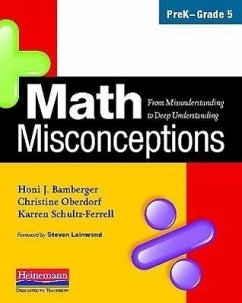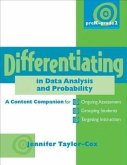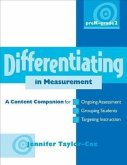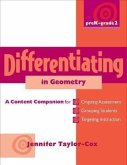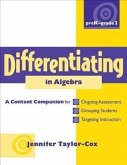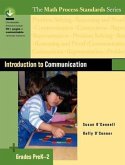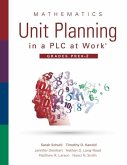Children enter school filled with all kinds of ideas about numbers, shapes, measuring tools, time, and money--ideas formed from the expressions they hear ... the things they see on television ... the computer screen ... in children's books ... all around them. It's no wonder some children develop very interesting and perhaps incorrect ideas about mathematical concepts. "How can we connect the informal knowledge that students bring to our classrooms with the mathematics program adopted by our school system? Just as important, how do we ensure that the mathematics we are introducing and reinforcing is accurate and will not need to be re-taught in later years?" Math Misconceptions answers these questions by: identifying the most common errors relative to the five NCTM content strands (number and operations, algebra, geometry, measurement, and data analysis and probability); investigating the source of these misunderstandings; proposing ways to avoid as well as "undo" misconceptions. Using classroom vignettes that highlight common misconceptions in each content area, followed by applicable research about the root causes of the confusion, the authors offer numerous instructional ideas and interventions designed to prevent or correct the misconception. --Publisher's description.
Hinweis: Dieser Artikel kann nur an eine deutsche Lieferadresse ausgeliefert werden.
Hinweis: Dieser Artikel kann nur an eine deutsche Lieferadresse ausgeliefert werden.

